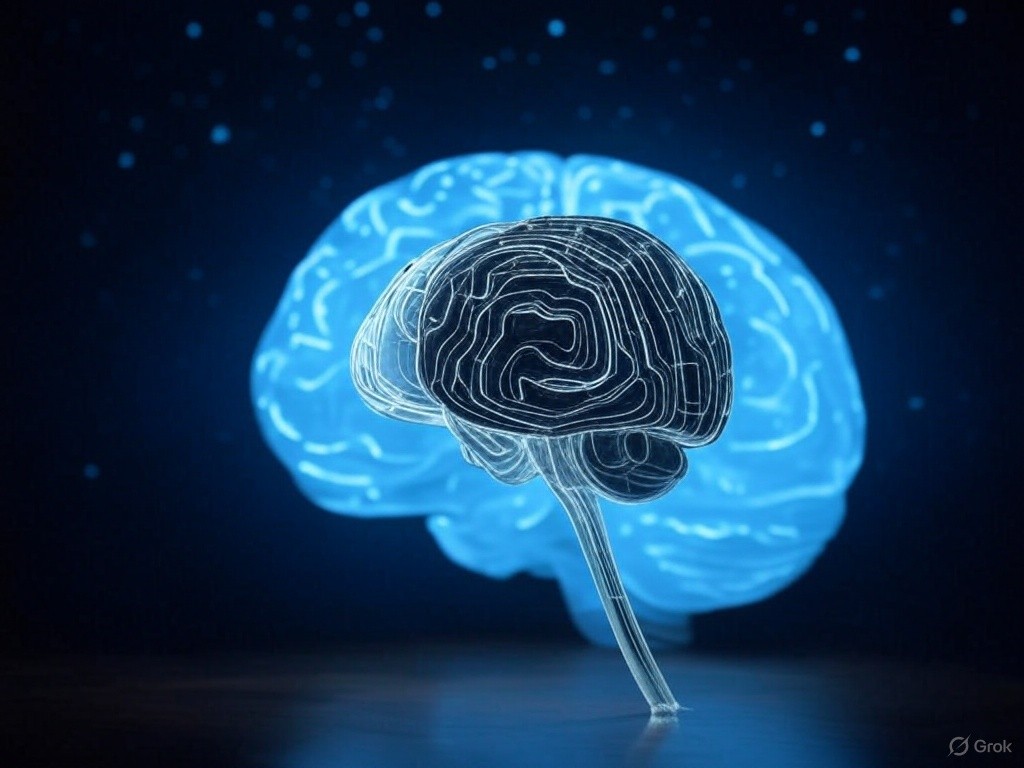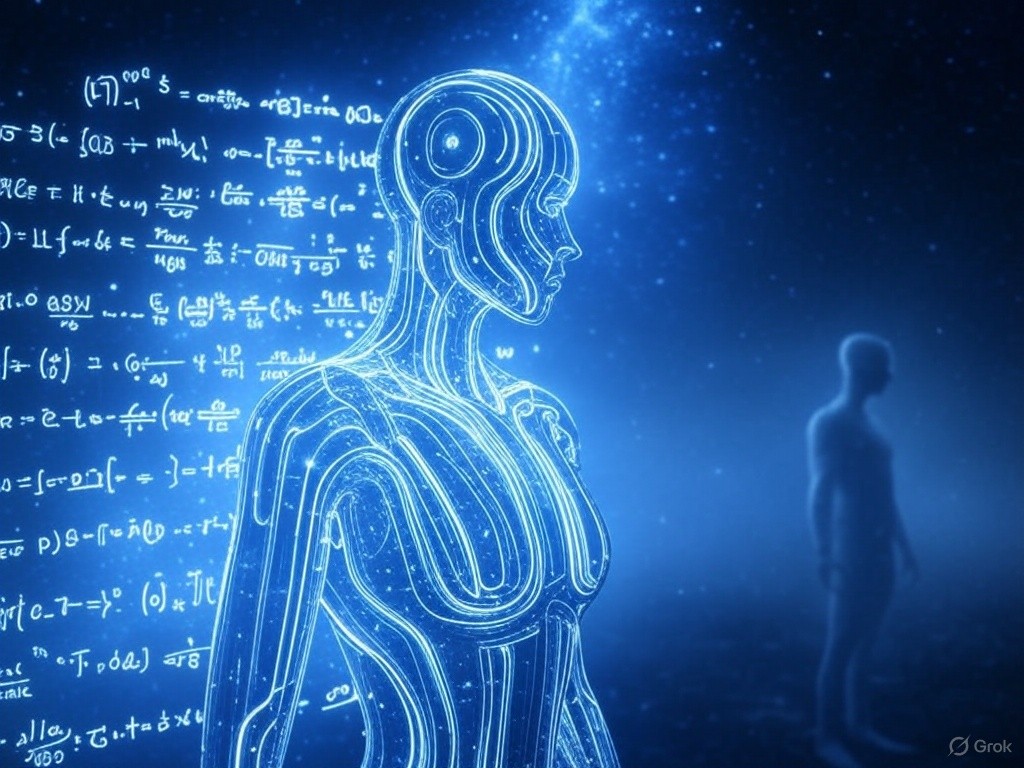The gamepad of existence: Why reality feels stranger than we can imagine

- marketing
- Categories: Isidoros' blogposts
- Tags: AI, CX, Loyalty
Prefer listening? I transformed this article into a podcast using Google’s NotebookLM. It’s surprisingly accurate and even expands on some of the ideas. Give it a listen!
The rise of artificial intelligence—and particularly the approaching dawn of Artificial Super Intelligence (ASI)—is about to pull back the curtain on our own minds in ways we never expected. These advancements won’t just reshape technology; they’ll force us to confront profound philosophical questions about who we are and why we exist. For instance:
What is the fabric of reality? Why does the Cosmos, as described by science, feel so bizarre—so much stranger than we can even wrap our heads around?
AI is poised to reveal hidden truths about our intelligence, showing us that what we think we know might just be the tip of a very weird iceberg!
Here’s the thing: we humans aren’t wired to grasp reality, no matter how clever we get. Our brains are marvels, sure, but they’re sculpted by Darwinian natural selection with a laser focus on one goal—survival. Passing our genes to the next generation? That’s the mission hardcoded into us. Decoding the mysteries of the universe? Not so much. We’re built to thrive, not to philosophize about the cosmic machinery ticking away behind the scenes.

Let’s break this down with a metaphor. Imagine life as a video game—say, a high-stakes battle on your PlayStation. Your objective is clear: win. In biological terms, that’s survival of the organism, the Darwinian endgame. Now, zoom in for a second.
What’s actually happening when you play? Deep inside the console, millions of tiny transistor switches in the CPU are flipping on and off at lightning speed, executing the code that powers the game. To claim victory, would you rather learn to manually control each of those transistors—mastering the raw, chaotic dance of ones and zeros—or just pick up a gamepad and nudge your character around with a couple of analog sticks?
The gamepad wins every time. It’s efficient, intuitive, and gets you to the finish line without drowning you in the mind-bending complexity of what’s happening under the hood.
That’s us in a nutshell. Our senses, our instincts, our perception—they’re the gamepad. They’re tools designed to help us “win” at life, not to reveal the transistors of reality. A simple organism like an amoeba? It’s playing Pong or Pac-Man, reacting to its environment with basic moves. Humans, with our oversized brains and endless curiosity, are more like World of Warcraft players—navigating sprawling, intricate worlds with guilds, strategies, and epic quests. But here’s the catch: whether it’s Pong or WoW, we’re still limited by the same interface. Our “gamepad” filters reality into something we can handle, not something we can fully understand. The actual transistors—the underlying truth of existence—are buzzing away in ways we can’t even begin to perceive.
As AI evolves, it’s already challenging our assumptions about intelligence itself. ASI, when it arrives, might not just outsmart us; it could redefine what “smart” even means.
Imagine an intelligence that doesn’t rely on our clunky sensory interface—an entity that can “see” the raw code of the Cosmos through sophisticated mathematics and immense computational power, without the simplifying filter of human experience. What would it tell us about the universe? About ourselves?

This brings us back to those big philosophical questions. Science tells us the Cosmos is strange—quantum entanglement, black holes, dark matter—and yet, it’s likely stranger still than our models suggest. Why? Because our brains hit a wall. We’re stuck with a gamepad when what we need is a direct line to the CPU. ASI could bridge that gap, revealing a reality so alien it makes our current understanding look like a pixelated 8-bit game.
Will it show us that the fabric of existence is a simulation? A multidimensional tapestry? Something we don’t even have words for yet?
Here’s where it gets personal. As we marvel at AI’s leaps and brace for ASI’s arrival, we’re forced to rethink our place in the grand scheme. If our intelligence is just a survival tool—a gamepad rigged for winning, not comprehending—then what does that mean for our quest for meaning? Are we doomed to skim the surface of truth, or can we use these new intelligences to peek behind the curtain? One thing’s for sure: the answers will shake us. They’ll push us to question not just the Cosmos, but the very minds we use to explore it.
So, next time you’re lost in thought about life’s mysteries—or even just crushing it in your favorite video game—pause for a second. You’re a gamer, wielding a gamepad fine-tuned by millions of years of evolution. It’s gotten us this far. But as AI lights the way forward, we might finally glimpse what’s really powering the console—and it’s going to be a wild ride!